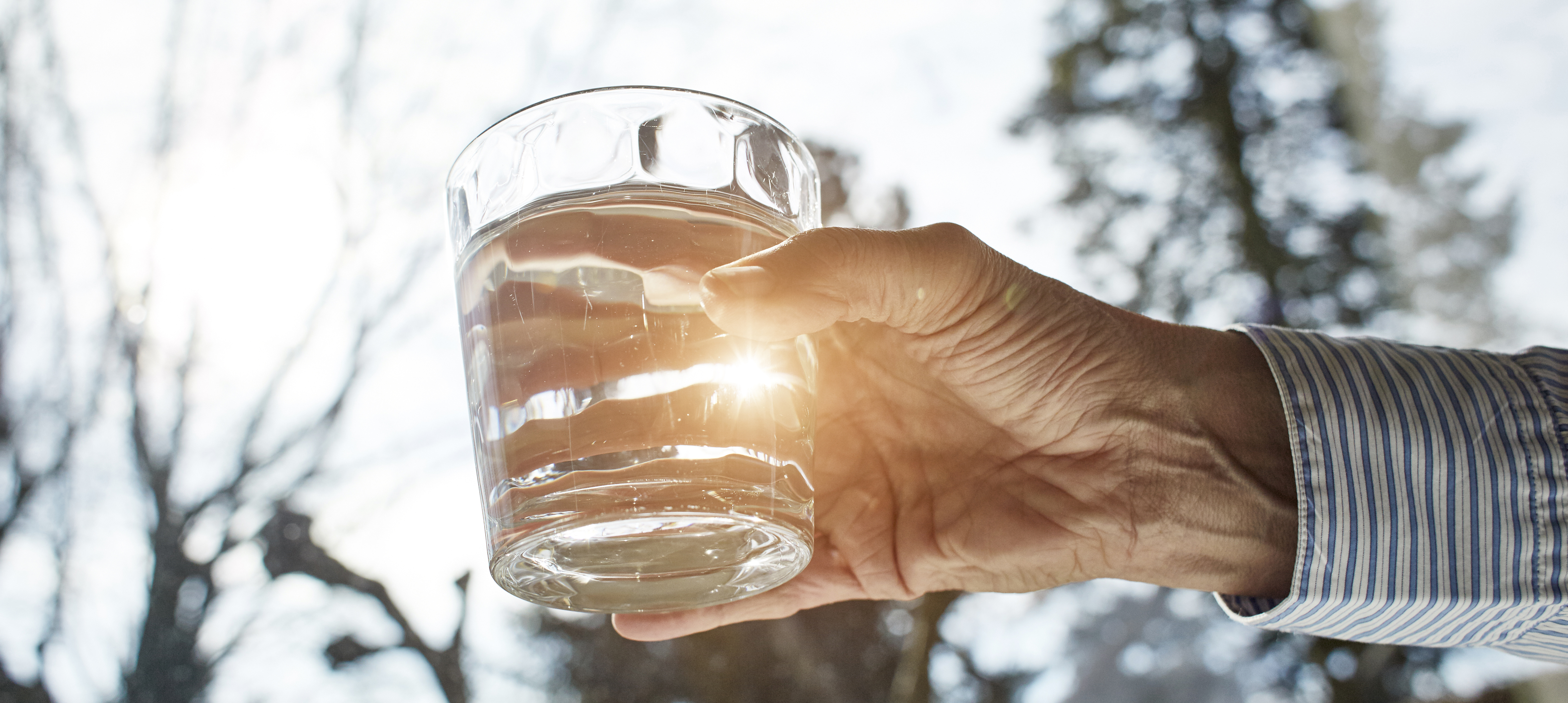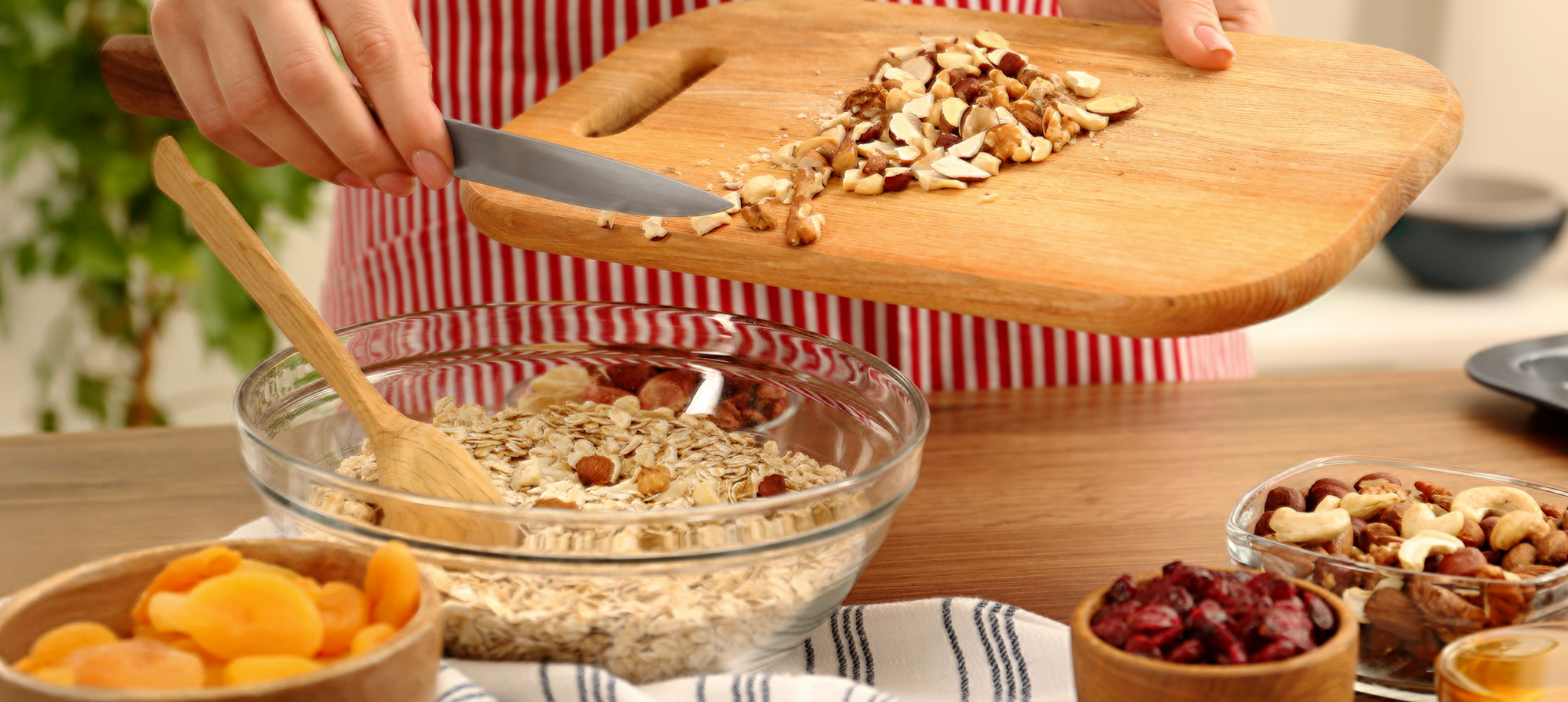Dehydration becomes likelier as you age, and its effect on your health can be serious.
When you become dehydrated it means you’re losing more fluids than you’re taking in. This tends to happen more often in older adults, and it can have serious consequences.
It can cause weakness and dizziness, which can impact your balance and raise your risk for falls. It can cause confusion. It can cause your blood pressure to drop. And over the long term, dehydration can harm your kidneys, affect how well your medicines work, and even raise your risk of heart attack and death.
Dehydration is a common reason older adults are hospitalized.
Why is dehydration more common in older adults?
Here are a few reasons why dehydration tends to be more common in older adults:
- A decrease in thirst. As you age, your sense of thirst will tend to weaken. Since thirst is what triggers you to drink, a lack of thirst can lead to a drop in fluid intake. It can also trick you into thinking you don’t need to drink as many fluids as you really do.
- Medications. Some drugs, including some diuretics and blood pressure medicines, can cause a loss of fluids.
- Mobility challenges. If it is difficult for you to get around, you may be less likely to get up for glasses of water, even if you’re thirsty.
- Kidney problems. As you age, your kidneys may not retain fluids as well. This may cause you to be at higher risk for dehydration.
How much water do you need to drink a day?
You may have heard the age-old advice to drink 8 glasses of water a day. That’s no longer the one-size-fits-all rule of thumb. Everyone’s fluid needs differ, depending on age, activity level, climate, physical size, and certain health conditions.
If you eat a lot of water-filled foods, like soup and juicy fruits and vegetables, you may not need to drink as much water. If you exercise hard, live in a hot climate, or live at a high altitude, you may need to drink more. Or, if you have certain health conditions, your doctor may suggest you drink more—or less.
Some guidelines suggest that women need about 11.5 cups of fluid each day, and men need about 15.5 cups a day. If that sounds like a lot, keep in mind that total volume is not just water, but fluids from foods and other drinks, too. In fact, some research suggests that drinking both water and other kinds of fluids may be best when it comes to staying hydrated.
Your best bet is to ask your doctor how much to drink if you’re not sure how much you need.
Not a Silver&Fit® member? Learn more about everything the program has to offer, including more helpful healthy living tips like this, here on our website.
This information is not intended to take the place of regular medical care or advice. Please check with your doctor before using this information or beginning any self-care program. Images used for this article do not depict any members of the Silver&Fit program.
References
Cheuvront, S. N., & Kenefick, R. W. (2016). Am I drinking enough? Yes, no, and maybe. Journal of the American College of Nutrition, 35(2), 185–192. https://doi.org/10.1080/07315724.2015.1067872
Cleveland Clinic. (2021, November 8). What the color of your pee says about you. https://health.clevelandclinic.org/what-the-color-of-your-urine-says-about-you-infographic/
Collin, L. J., Judd, S., Safford, M., Vaccarino, V., & Welsh, J. A. (2019). Association of sugary beverage consumption with mortality risk in US adults: A secondary analysis of data from the REGARDS study. JAMA Network Open, 2(5), e193121. https://doi.org/10.1001/jamanetworkopen.2019.3121
Frangeskou, M., Lopez-Valcarceli, B., & Serra-Jajem, L. (2015). Dehydration in the elderly: A review focused on economic burden. Journal of Nutrition, Health, and Aging, 19(6), 619-27. https://doi.org/10.1007/s12603-015-0491-2
Mayo Clinic. (2021, October 14). Dehydration. https://www.mayoclinic.org/diseases-conditions/dehydration/symptoms-causes/syc-20354086
Mayo Clinic. (2022, May 17). Hyponatremia. https://www.mayoclinic.org/diseases-conditions/hyponatremia/symptoms-causes/syc-20373711
Mayo Clinic. (2022, October 12). Water: How much should you drink every day? http://www.mayoclinic.org/healthy-lifestyle/nutrition-and-healthy-eating/in-depth/water/art-20044256
Picetti, D., Foster, S., Pangle, A. K., Schrader, A., George, M., Wei, J. Y. . . . & Azhar, G. (2017). Hydration health literacy in the elderly. Nutrition and Healthy Aging, 4(3), 227-237. https://doi.org/10.3233/NHA-170026
Sawka, M. N., Burke, L. M., Eichner, E. R., Maughan, R. J., Montain, S. J., Stachenfeld, N. S. (2007). American college of sports medicine position stand: Exercise and fluid replacement. Medical Science Sports Exercise, 39(2), 377-90. https://doi.org/10.1249/mss.0b013e31802ca597
Siervo, M., Bunn, D., Prado, C. M., Hooper, L. (2014). Accuracy of prediction equations for serum osmolarity in frail older people with and without diabetes. American Journal of Clinical Nutrition, 100(3), 867-876.
United States Department of Health and Human Services, United States Department of Agriculture. (2020). Dietary Guidelines for Americans, 2020 – 2025. (9th ed.). https://www.dietaryguidelines.gov/
This article was written by Nora Byrne, edited by Candace Hodges, and clinically reviewed by
Elizabeth Thompson, MPH, RDN , on October 2, 2024.





